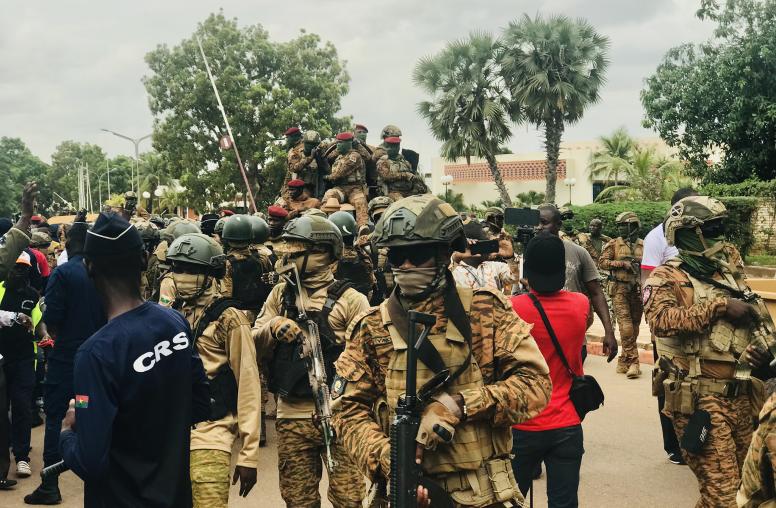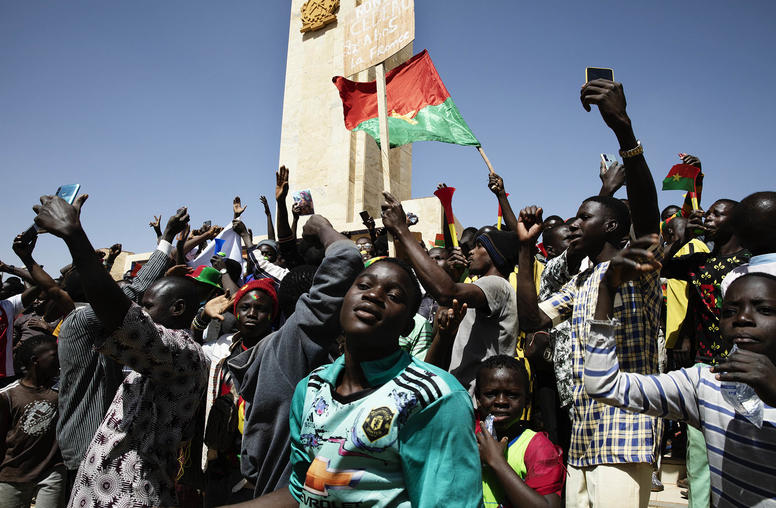West Africa’s Leaders Face the High Stakes of Niger’s Coup
The ECOWAS bloc sees this coup as an ‘existential challenge,’ signals ‘no option…off the table.’
Amid the global challenges to building international stability and peace, a crisis increasingly forcing itself to the foreground — even amid those of record human displacement, climate degradation and unresolved wars — is the plunge by six countries across Africa’s Sahel region into coups d’état and military rule. Eight coups since 2020 have left 150 million people under rule by their armed forces. The latest coup, in Niger, is drawing a heightened international response, and a key player, the 15-nation West African community, said today that it will pursue a long campaign of economic and diplomatic pressure, and that it sees military force as a last resort.

The Niger coup, 15 days ago, completed what is now the world’s largest contiguous region of military rule, from Guinea on the Atlantic Ocean to Sudan on the Red Sea. The root of the crisis is that states have failed to build effective democracies that meet their people’s needs for even basic security and livelihoods. That has bred long-festering grievances, frustration, extremism and now a decade of violent insurgencies and communal conflicts. Military coups are simply another version of that violence, USIP’s “Why All the Coups?” analysis project has underscored.
Any effective U.S. or international effort to promote a return to stability and better governance in Niger and the Sahel needs to partner closely with African institutions such as the African Union and the Economic Community of West African States (ECOWAS), USIP experts stress. ECOWAS heads of state met today and the bloc’s chairperson, Nigerian President Bola Tinubu declared that “No option is taken off the table, including the use of force as a last resort.” USIP’s Ambassador Johnnie Carson says the bloc sees the coup as “an existential challenge” to the West Africa region and to ECOWAS.
What came out of the emergency ECOWAS meeting?
ECOWAS leaders renewed in strong language their condemnation of the military coup and of the junta’s detention of President Bazoum. The group called for his reinstatement in power and “a quick restoration of constitutional order.”
ECOWAS has expressed zero tolerance for coups and condemned them as an illegal usurpation of power that rarely benefits the people or the country where coups have taken place.
The summit meeting today underscored “the determination of the ECOWAS Authority to keep all options on the table for the peaceful resolution of the crisis,” while saying that a “standby force” should be prepared for use “to restore constitutional order.” The statement gave no indication of the conditions under which any use of force would be considered.
The bloc vowed to enforce its sanctions, including the closure of borders with Niger, and economic and financial sanctions on the country. It also will maintain travel bans and a freezing of assets “on all persons, or groups … whose actions hinder” peaceful efforts to restore Bazoum to power.
ECOWAS leaders issued a warning to member states not to hinder efforts to restore constitutional order in Niger. Besides Niger, three member states — Guinea, Mali and Burkina Faso — are now ruled by military regimes, and the latter two have offered statements of support for Niger’s junta.
Why has ECOWAS taken a harder line against the coup leaders in Niger as opposed to those in Burkina Faso and Mali, who are also members of the bloc?
ECOWAS recognizes the coup in Niger is an existential challenge not only to the political integrity of Niger, but to the security, political, and economic stability of the entire Sahel region, Coastal West Africa — and to ECOWAS itself. The group’s leaders know that the coup organizers in Niger were probably influenced by the success of the coups in Mali and Burkina Faso. They know that West Africa is at a tipping point. They know that other states in the region are facing serious economic and political problems and are vulnerable to internal instability. EOWAS leaders, especially in the region’s four most important states (Nigeria, Ghana, Ivory Coast and Senegal) recognize that they have to take a firm stand. Failure to take strong action against Niger could incentivize other soldiers in West Africa to act unconstitutionally.
How might a prolonged standoff affect counterterrorism efforts and broader regional stability in the Sahel?
A failure of ECOWAS to reverse the coup in Niger will have a catastrophic impact on the country, the Sahel region and Coastal West Africa. It will set back democratic progress and economic development. Niger is one of the six poorest states in Africa and has the world’s highest birth rate. It depends heavily on foreign assistance to meet its budgetary needs and is challenged by a stagnant economy, high youth unemployment and climate change. It also faces a serious jihadist insurgency in the northern part of the country. Niger’s last two democratic governments have made progress in addressing its economic and security problems but only with large infusions of U.S. and EU assistance. That economic support will almost certainly be cut, worsening the country’s economic situation and throwing millions of people into greater poverty.
The junta leaders will not be able to curb terrorist activities. The country’s security situation will deteriorate and human rights violations will increase. The Nigerien military is heavily dependent on French, American and EU assistance for intelligence, equipment and counterterrorism training. As the junta leaders strengthen their ties with Mali and Burkina and possibly with the Russian Wagner Group, the U.S. and France will be forced to cut their security assistance and relocate their regional drone bases. The region will also be impacted by additional democratic backsliding and coups in politically weak and economically stressed countries. This coup is a major setback for West Africa and will have far-reaching consequences.



